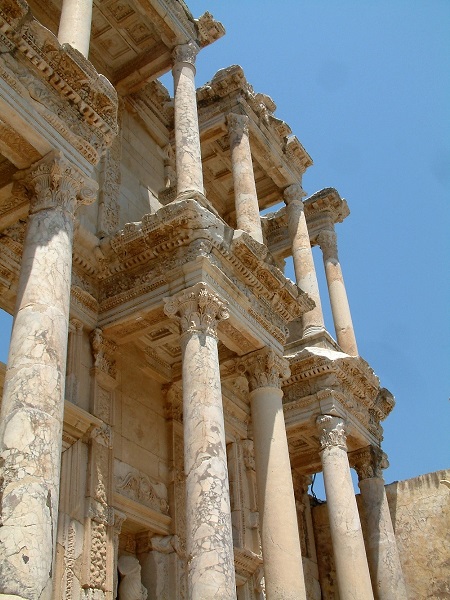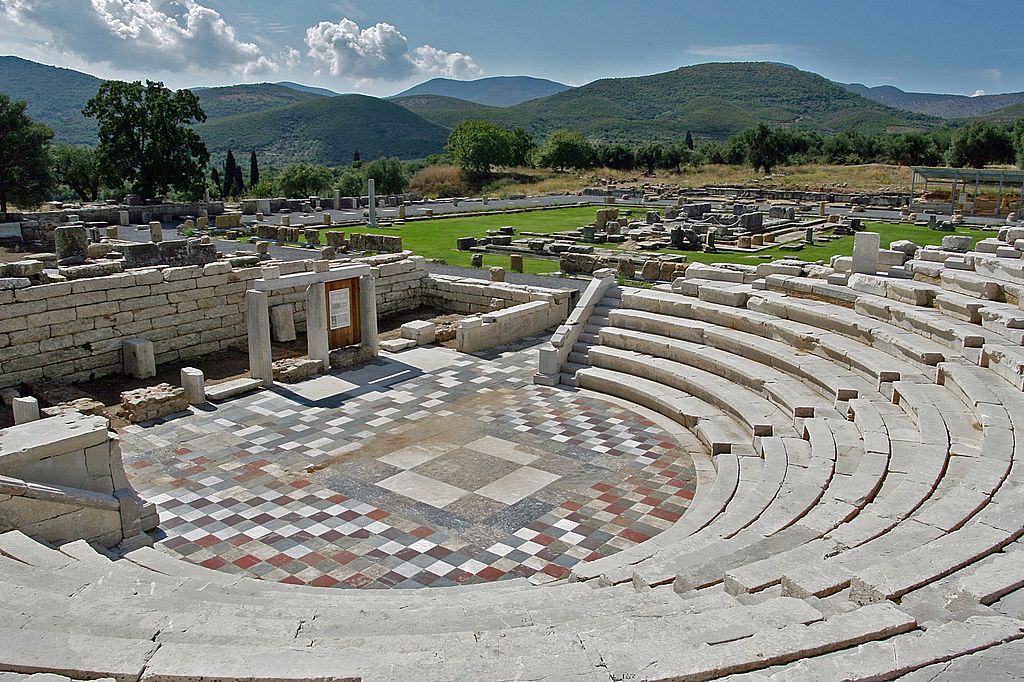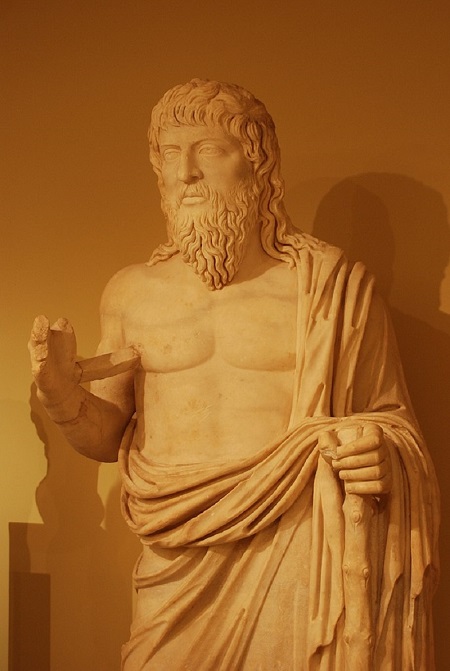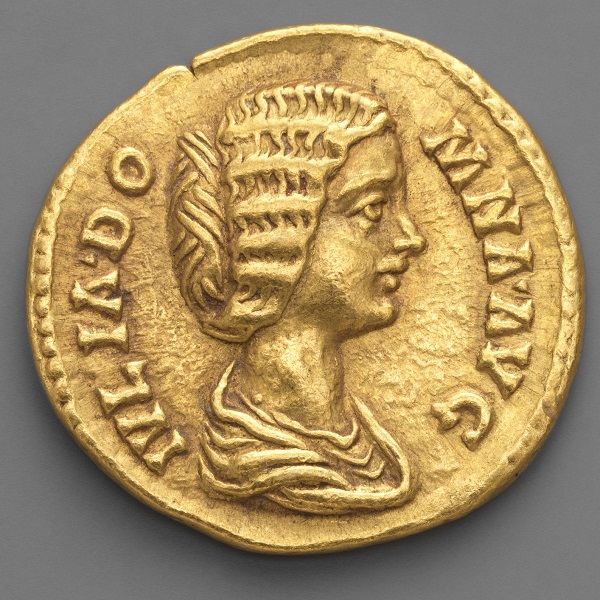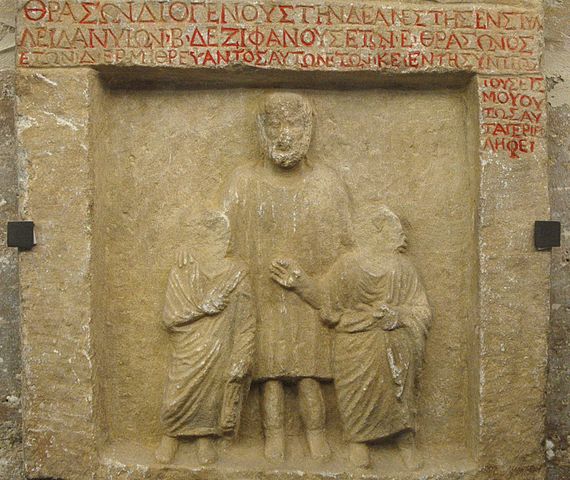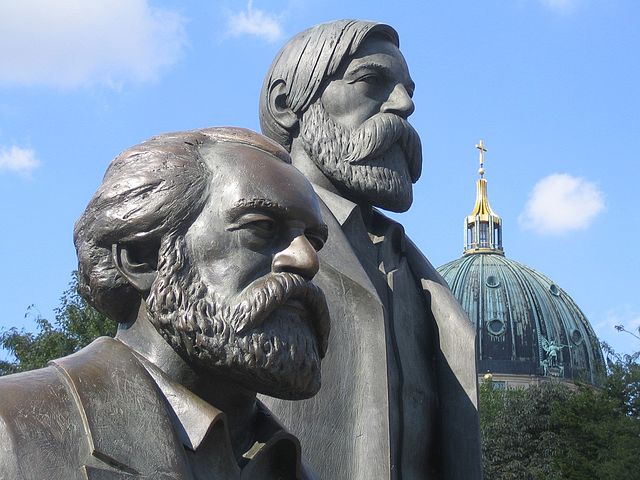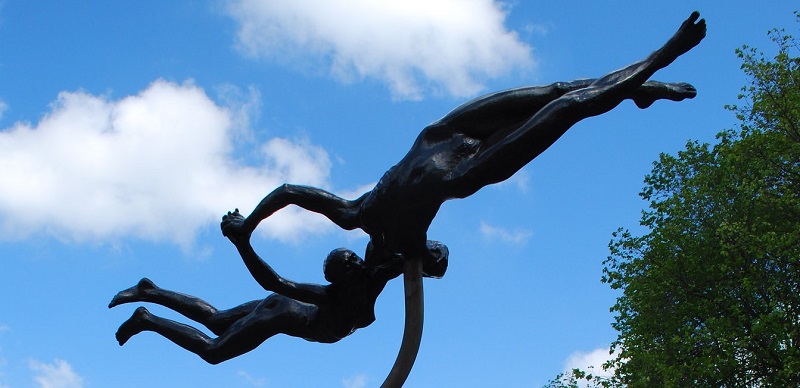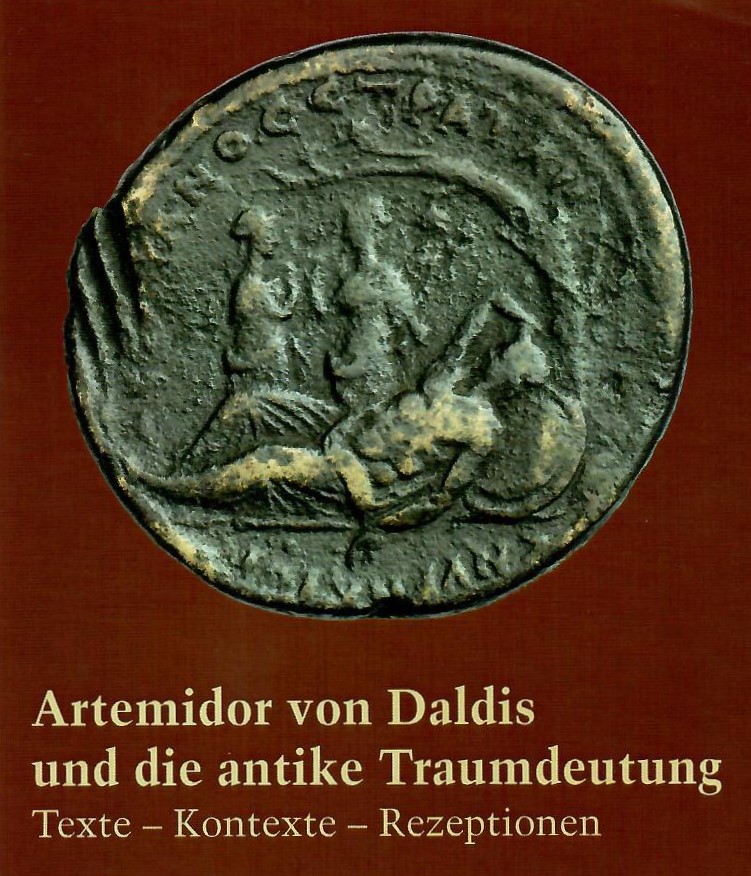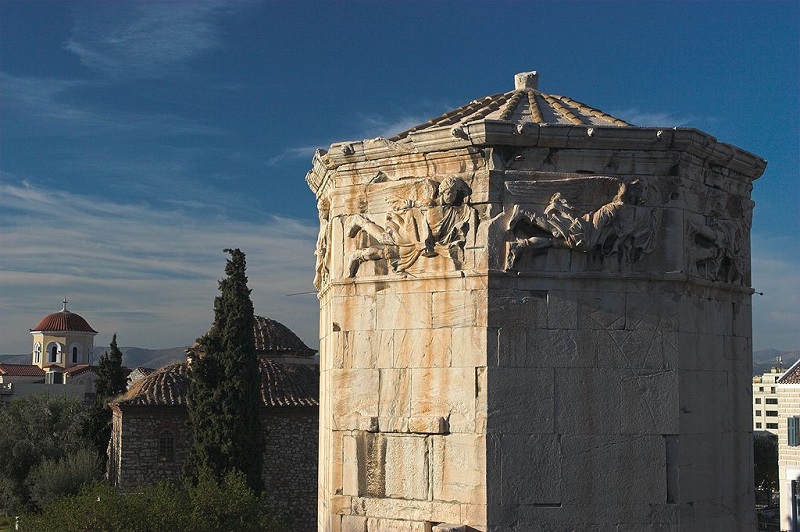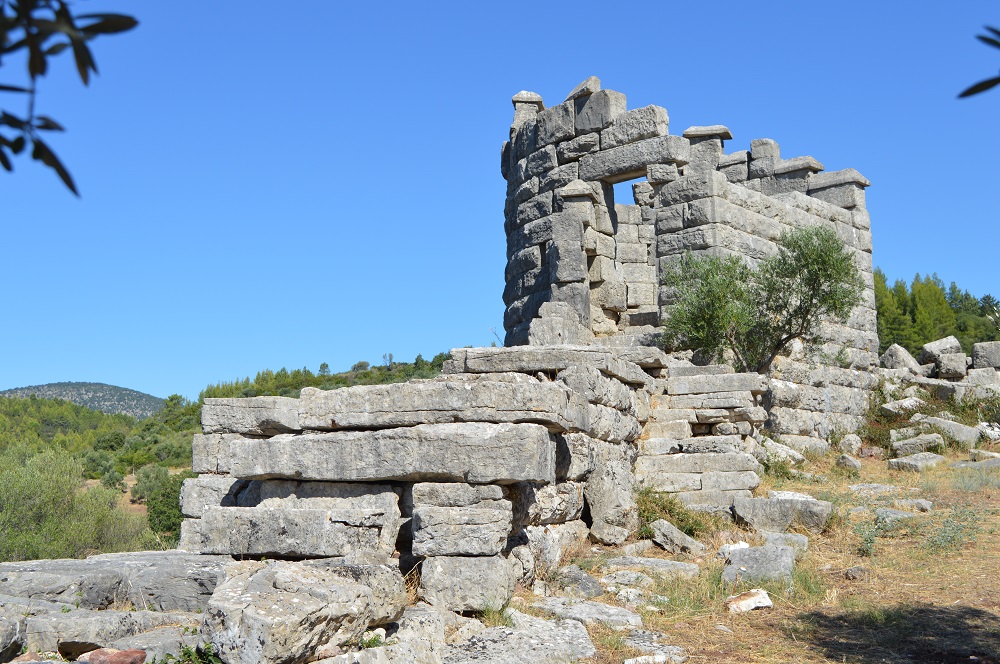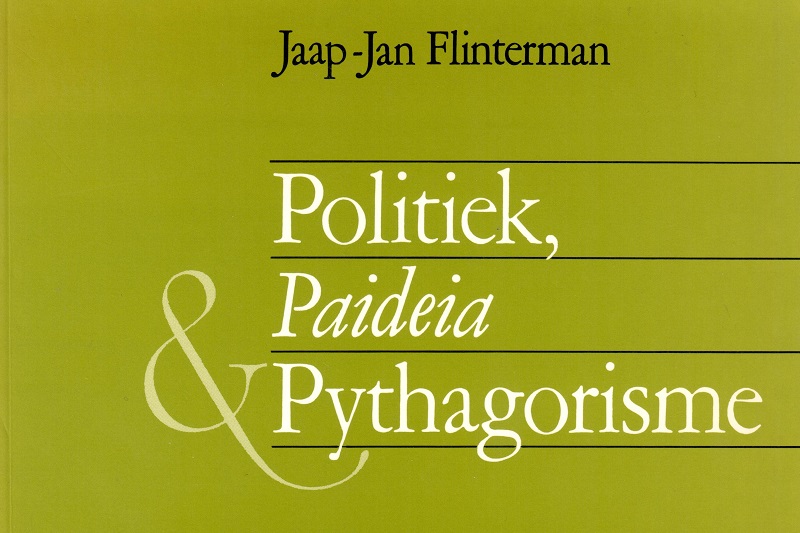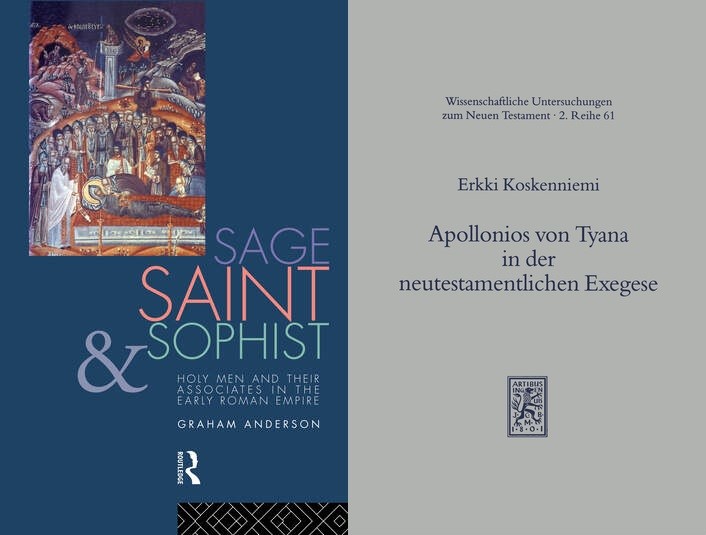In
de wintermaanden van
2014-2015 boog de
opleidingscommissie van Archeologie, Griekse en Latijnse Taal- en
Cultuur en Oudheidkunde aan de Vrije Universiteit zich meerdere malen
over een klacht van een studente Religiewetenschappen, die korte tijd
de minor Antieke Cultuur had gevolgd. Haar onvrede gold vooral het
onderwijs in
de Oude Geschiedenis. Dit onderwijs, vond
zij, droeg bij tot 'een eurocentrische en racistische kijk op de
geschiedenis, waarin de zwarte mens miskend wordt in zijn (enorme!)
bijdrage aan westerse civilisatie.' De opleidingscommissie wees haar
klacht van de hand. Je kunt de mailwisseling
hier
nalezen. Voor de klaagster was de kous daarmee niet af, en op haar
initiatief vond in juni 2015 een openbaar debat plaats tussen
enerzijds twee leden van de opleidingscommissie,
Gerard
Boter en
Jaap-Jan Flinterman (webmaster van deze site en destijds docent Oude
Geschiedenis), en anderzijds Sandew Hira en
Djehuti-Ankh-Kheru, die met de klaagster van mening waren dat bij
Oudheidkunde
aan de VU geen wetenschappelijk onderwijs wordt gegeven, maar 'de
ideologie van de witte suprematie' wordt verkondigd.
Een volledige
weergave van het debat kun je op
You Tube bekijken. Met dat debat
was de botsing van meningen overigens nog niet afgelopen. In november
2015 kwam
Advalvas,
het universiteitsblad van de VU, met een
nabeschouwing. Sandew Hira en
Djehuti-Ankh-Kheru waren niet tevreden over het artikel, en kwamen op
hun eigen website op de zaak
terug. In juni 2016 kruisten we wéér de degens, in de rubriek
'Contramine' van het
Tijdschrift
voor Geschiedenis 129.2, 241-250. Onze bijdrage kun je
hier
lezen. En
in juni 2017 plaatste
Lampas,
het tijdschrift voor Nederlandse classici, twee artikelen van
mijn
hand over de mythe dat de Grieken zich tijdens de
verovering van
Egypte door Alexander de Grote daadwerkelijk Egyptische wijsheid zouden
hebben toegeëigend door een Egyptische bibliotheek te plunderen:
'
Gestolen erfenis 1: diefstal in Alexandrië'
en '
Gestolen erfenis 2:
tempelroof in Rakote'. In oktober van datzelfde jaar
publiceerde Djehuti-Ankh-Kheru in eigen beheer een boek met
de fraaie titel
Boterzacht
en Flinterdun. De Ontmaskering van Eurocentrisme
(Amsterdam: The Grapevine Publications, 2017). Een
appendix in dat boek (blz. 183-200: 'Het Alexandriësyndroom') was
gewijd aan een kritische bespreking van mijn
Lampas-artikelen.
In deze tekst uit de zomer van 2019 (
Gestolen erfenis 3: Alexandria revisited)
houd ik zijn argumenten tegen het licht.
Wat
mankeerde er volgens de klaagster en haar achterban aan het
onderwijs in de Oude Geschiedenis op de VU? Welnu, de docent Oude
Geschiedenis wiens onderwijs zij zou volgen,
vertelt zijn studenten niet dat de Griekse cultuur uit Zwart Afrika
komt. Hij vindt dat geen serieuze bijdrage aan de wetenschappelijke
beeldvorming
van de geschiedenis van de Oudheid, en de opleidingscommissie was dat
met hem eens.
Dat
de wortels van de Griekse beschaving in Zwart Afrika liggen, is het
centrale leerstuk van wat
doorgaans als afrocentrisme
wordt aangeduid. De mailwisseling en de voorbereiding op het
debat
hebben me veel geleerd over deze stroming, en ik heb gemerkt dat ook
bij anderen
die met afrocentrisch gedachtegoed worden geconfronteerd, behoefte
bestaat aan goede informatie. De webpagina waarnaar je hierboven een
link aantreft, is een poging in die behoefte te voorzien. Hij bevat
(naast een heel korte typering van het afrocentrische gedachtegoed)
links naar websites waarop kritisch, maar serieus wordt
ingegaan op afrocentrische opvattingen, en er is ook een lijstje met
een paar boeken over deze stroming opgenomen.
Voor
Lampas 56.1 (2023) schreven
Mieke Prent en ik een artikel over het Asklepieion in de oud-Griekse stad
Messene. Messene was de centrale stadstaat van Messenia, het zuidwestelijke
deel van de Peloponnesos. Sinds de archaïsche periode van de Griekse
geschiedenis was dat landschap in handen geweest van Sparta, maar in 369
v.Chr. dwong de Thebaanse veldheer Epameinondas de Spartanen het grootste deel
van Messenia op te geven en legde hij de fundamenten voor een nieuwe stad.
In het
artikel in Lampas ligt
het accent op het heiligdom dat
in de eerste helft van de tweede eeuw v.Chr. in het centrum van Messene
werd gebouwd voor de genezende god Asklepios – over de resten van
een ouder heiligdom
heen. Het artikel moest ook een korte schets van de geschiedenis van
Messenia
bevatten, gedurende de periode van de stichting van de stad in 369 tot
de vestiging
van de Romeinse hegemonie over Griekenland rond het midden van de
tweede eeuw
v.Chr. Ik schreef daarvoor een voorstudie. Voor het artikel in
Lampas was
die veel te lang, maar mensen die zich willen verdiepen in de Messeense
geschiedenis – of meer in het algemeen in de geschiedenis van de
Peloponnesos in de hellenistische periode – vinden
het stuk misschien wel handig.
Ik hoop dat vooral universitair werkzame
oudhistorici die college willen geven over de hellenistische Peloponnesos, er hun voordeel mee kunnen doen. Dat is het
kader waarin ik mijzelf met de materie vertrouwd heb gemaakt: in de jaren 2016
tot 2019 verzorgden Mieke Prent en ik aan de Vrije Universiteit een
archeologisch-historisch werkcollege over de hellenistische Peloponnesos voor
gevorderde bachelor-studenten Oudheidkunde/Oudheidstudies, (Oude) Geschiedenis
en (Mediterrane) Archeologie. Ook bij de voorbereiding van excursies zou de webpagina misschien van pas kunnen komen.
Het stuk achter bovenstaande link geeft een vrij
compleet overzicht van wat we van de politieke geschiedenis van Messene in de
hellenistische periode weten en, omdat de annotatie nogal ruim bemeten is,
krijgt de lezer ook een beeld van het bronnenmateriaal waarop onze kennis van
die geschiedenis is gebaseerd. Helemaal aan het slot van de webpagina, na de noten
en bibliografie, geef ik een overzicht van de bronnen en signaleer ik
de voornaamste wetenschappelijke literatuur. Voor vragen, opmerkingen,
kanttekeningen, aanvullingen en correcties houd ik mij aanbevolen.
This is the
complete translation of a short French-language note published in the
Zeitschrift
für Papyrologie
und
Epigraphik
70, 1987, 171-172:
'Sur les lignes 11-13 de l'inscription de
Laodice'. It
adduces a parallel for a
phrase from the so-called Laodice inscription: an epigraphic
dossier
concerning the sale, by the
Seleucid
king Antiochus II to his wife or former wife Laodice, of the village of
Pannucome.
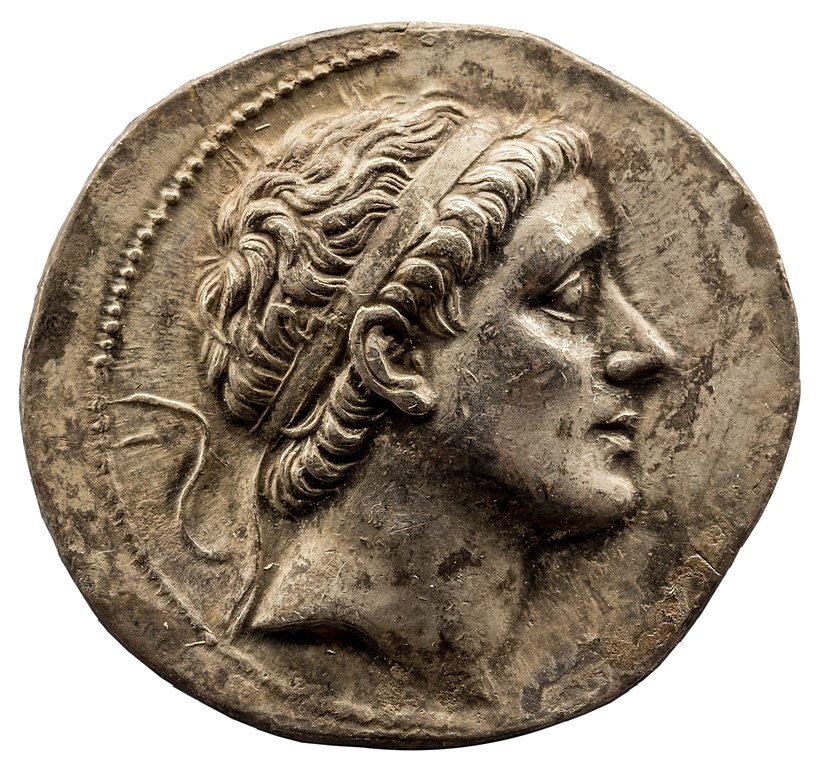
The sale
can
be
dated to the year 253 BC; Pannucome was situated in what is now
northwestern Turkey, near the modern city of Gönen. In the 1970's and
1980's
there was some
discussion about the question whether the peasants from the
village were included in the sale. I
thought
(and still think) that they were, and that the parallel adduced in this
note
proves that this is the correct interpretation of the royal letter that
constitutes the central document of the dossier.
Unfortunately, the
misunderstanding I tried to dispel in my 1987 contribution still crops
up
in
items of the standard bibliography on the position of native peasants
in Asia Minor.
That is why in 2012, after a quarter of a century, I returned
to the subject: 'Pannucome
revisited: lines
11-13 of the Laodice inscription again',
ZPE 181, 2012,
79-87.
The Dutch language
version of
Power,
Paideia
&
Pythagoreanism. Greek
Identity, Conceptions of the Relationship
between Philosophers and Monarchs, and Political Ideas in Philostratus'
Life of
Apollonius (Amsterdam,
Gieben: 1995)
was published in 1993 by Styx Publications in
Groningen;
it was my doctoral dissertation (
full text), supervised by Lukas de
Blois, Professor of Ancient History at the University of
Nijmegen. In
the Netherlands,
dissertations
written in Dutch have to contain a summary in a language
accessible to an international readership. Since at the time I did not
know whether I would receive a translation grant, I wrote a
fifteen-page summary in English (pp. 307-321). The publication, in
1995, of the
translation by Peter Mason made the summary redundant as a device to
bring my dissertation
to the attention of an international readership. However,
it may still
come
in handy for those who think a 240-page monograph on the
Life of
Apollonius
a bit
too much of a good thing; and it may also be
helpful to
people who
want to complement a partial reading of the book by perusal of a
synopsis. Therefore, I have decided to put it online, even though I
must ask the
reader for his or her clemency, because it was my first extended
exercise in English prose composition. Superfluous to say that
things such as references and bibliography are almost completely
missing. For those see
the
book. The summary of the
Dutch-language version is preceded by the table of contents of the
English version.
Presenting an up-to-date bibliography on
the
Life of
Apollonius
would be quite time-consuming. Two volumes
of papers, on the
Life
of
Apollonius
and on Philostratus respectively, were published in 2009: Kristoffel
Demoen, Danny Praet (eds),
ΘΕΙΟΣ ΣΟΦΙΣΤΗΣ.
Essays on Flavius Philostratus’ Vita Apollonii (Leiden:
Brill
2009); Ewen Bowie, Jas
Elsner
(eds),
Philostratus
(Cambridge:
Cambridge University Press
2009). My contribution to the former volume can be found
here.
One of the editors of
ΘΕΙΟΣ ΣΟΦΙΣΤΗΣ,
Kristoffel Demoen, also
supervised a fascinating dissertation on the
Life of Apollonius:
Wannes
Gyselinck,
Talis
oratio, qualis vita. Een tekstpragmatisch onderzoek naar de poëtica van
Flavius Philostratus' Vita Apollonii, Universiteit Gent
2008. You
can find it
here (full text).
In order to read it, you'll have to learn Dutch, but I guarantee you
that it's worth the effort! Both Philostratus'
Life of Apollonius
and his
Lives of the
Sophists are extensively discussed and contextualized in a
recent book by Adam M. Kemezis,
Greek
Narratives of the Roman Empire under the Severans: Cassius Dio,
Philostratus and Herodian (Cambridge: Cambridge University
Press 2014). An article by
Gerard Boter about the title of
the
Life of Apollonius
appeared in the
Journal
of Hellenic Studies 135 (2015). In 2022 Boter's new
critical edition of the
Life
of Apollonius - the first one since Kayser's 1870
editio minor - has
been published in the series
Bibliotheca Teubneriana. A companion to this edition,
Critical Notes on Philostratus' Life of Apollonius of Tyana (Berlin/Boston 2023), has appeared in the series
Sammlung Wissenschaftlicher Commentare (
SWC). A lot of good information
on Apollonius of
Tyana can be
found on the internet, thanks to Jona Lendering, who has put online
Conybeare's 1912 Loeb translation
of Philostratus'
Life
of
Apollonius
as well as interesting articles on both
the author and the
main character.


